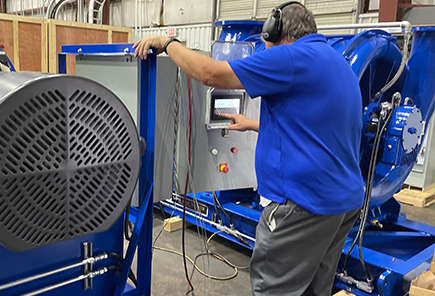
Mastering PLC programming is an essential skill for anyone interested in electrical engineering. Programmable Logic Controllers (PLCs) are widely used in industrial automation and control systems to automate processes and make them more efficient. This beginner's guide will help you understand the basics of PLC programming and equip you with the knowledge to start your journey in the field of electrical engineering.
Firstly, it's important to understand what a PLC is and how it works. A PLC is a specialized computer used to control machinery and other electromechanical systems. It is programmed using a language called ladder logic, which is based on relay logic diagrams. PLCs are equipped with input and output modules that allow them to interface with sensors, actuators, and other devices in a system. By writing programs in ladder logic, engineers can define the logic and sequencing of operations that the PLC will execute to control a process.
One of the key advantages of PLC programming is its flexibility and ease of modification. Unlike hardwired control systems, PLC programs can be easily modified or updated to accommodate changes in a process or system. This makes PLCs ideal for applications where the requirements are likely to evolve over time. By mastering PLC programming, you will be able to design, implement, and maintain control systems that can adapt to the changing needs of the industry.
Another important aspect of PLC programming is troubleshooting and debugging. As with any software-based system, PLC programs can sometimes exhibit unexpected behavior or errors. As a PLC programmer, you will need to be able to diagnose and fix these issues quickly to minimize downtime and ensure the smooth operation of the system. By learning the common pitfalls and debugging techniques in PLC programming, you will be better equipped to handle any challenges that may arise in your projects.
Furthermore, mastering PLC programming will open up a wide range of career opportunities in the field of electrical engineering. PLCs are used in a variety of industries, including manufacturing, automotive, energy, and aerospace, among others. By acquiring skills in PLC programming, you can apply for jobs as a controls engineer, automation engineer, or PLC programmer in these industries. These roles often come with attractive salary packages and opportunities for career advancement, making PLC programming a lucrative and rewarding field to pursue.
To get started with mastering PLC programming, you will need to familiarize yourself with the basics of electrical engineering. This includes understanding concepts such as voltage, current, resistance, and power, as well as basic circuit analysis techniques. By having a solid foundation in electrical engineering, you will be better able to grasp the principles of PLC programming and apply them effectively in your projects.
Additionally, it is important to practice hands-on programming with real PLC hardware and software. Many universities and technical schools offer courses in PLC programming that provide students with the opportunity to work with industry-standard PLCs and simulation software. By gaining practical experience in programming PLCs, you will develop the skills and confidence needed to tackle complex automation projects in the real world.
In conclusion, mastering PLC programming is a valuable skill for anyone interested in pursuing a career in electrical engineering. By understanding the basics of PLCs, learning how to write programs in ladder logic, and gaining hands-on experience with real PLC hardware, you will be well-equipped to design, implement, and troubleshoot automation systems in a variety of industries. Whether you are a student looking to enter the field of electrical engineering or a professional seeking to enhance your skills, mastering PLC programming will open up new opportunities and help you thrive in this exciting and dynamic field.
